Things I Learned in Japan
And the things I forgot in 2024
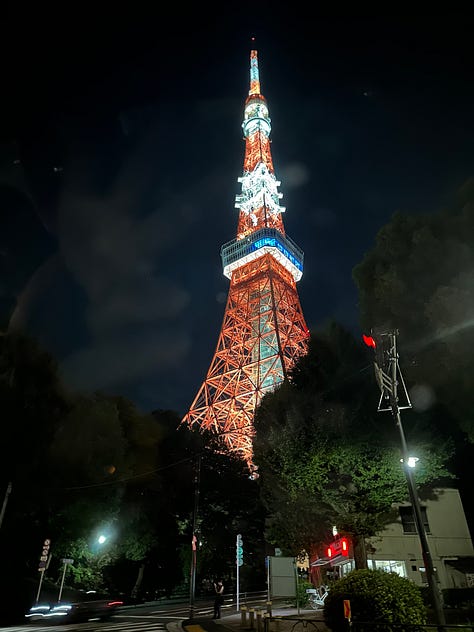
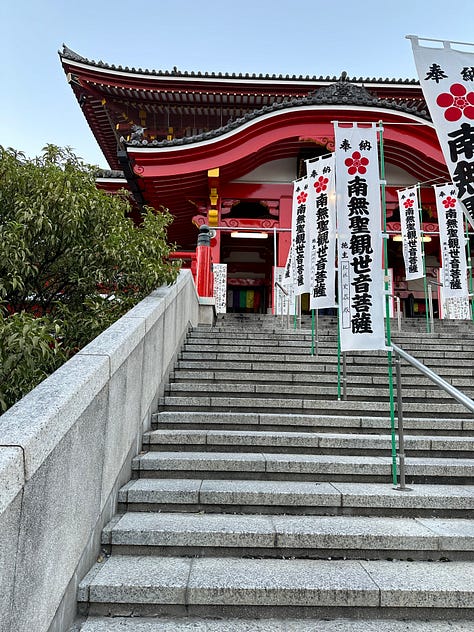
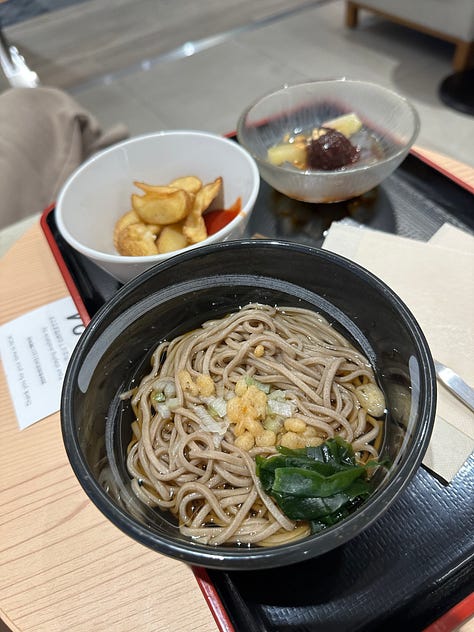

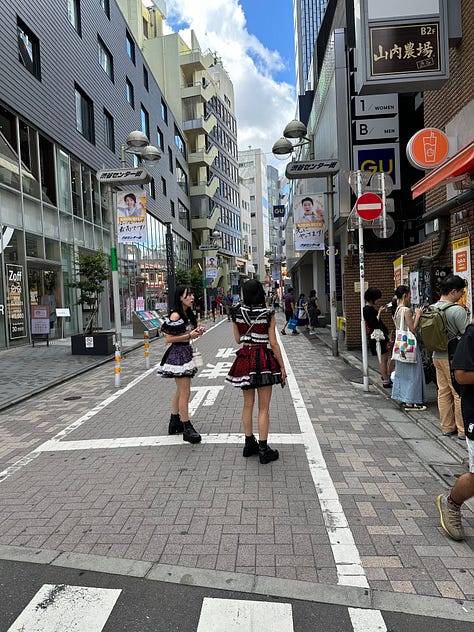
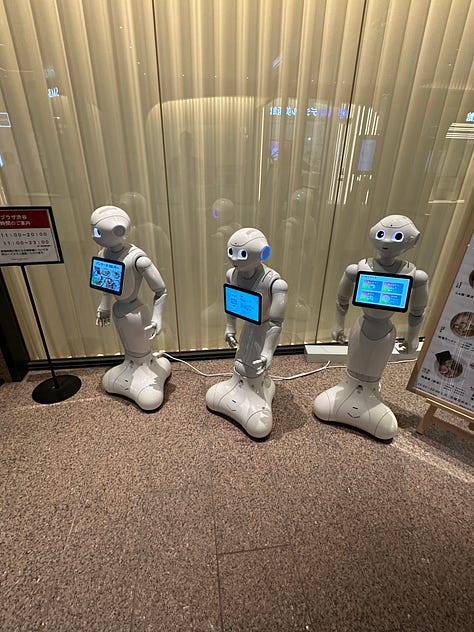


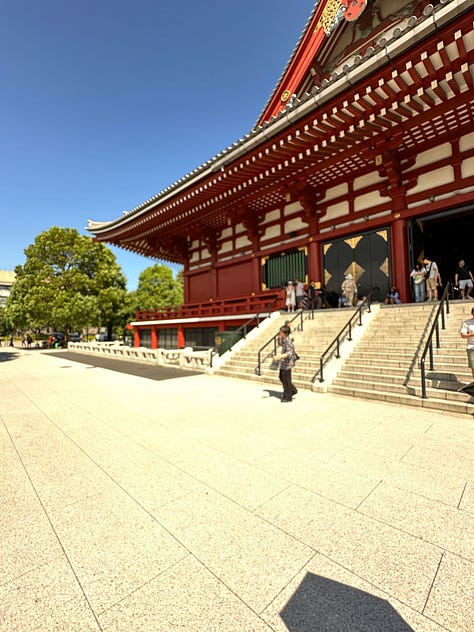
Japan is the probably the only country I’ve ever visited where I’m always sad after I leave and where I’m always sad when I return. That’s not a diss on LA or an unconfessed blind-spot for Japan, it’s just what happens after every trip there and back from the motherland.
Whenever I’m in Japan, I’m constantly amazed at the things that Japanese society has thought of and created for itself and I always wonder (read: hope) that I will figure out how to translate my visits to Japan to my life in California to improve my quality of life, but for some reason it never quite works out that way despite my best attempts. Nevertheless, I do feel like I learn so much about myself and the world I want to live in when I spend time there and I guess while I’m still deep in the longing, nostalgia, & reverse culture shock phase after returning to my life in LA (a life I have made together with LB that normally delights me), here are some things I feel like I’ve (re-)learned:
American portions are ludicrously large and we drive way too much and you don’t realize it until you’re walking in the largest city in the world and see how rare obesity is in Tokyo because almost everyone walks, their lattes are half the size of American ones, their snacks are just a few bites, & their meals are modest in comparison
Rules can streamline society and too much freedom can sabotage it. Americans all love their freedom until someone else’s freedom infringes on their own (e.g., mass shootings, abortion restrictions, street racing, Klan rallies, etc., etc.), but on the other side of the Pacific Ocean, I witnessed how rules can make a society so much more effective, thoughtful, & net positive. When you ride the subway in Tokyo or Nagoya or take the Shinkansen from Shikoku to Chūbu to Kantō regions, for example, there are clearly designated boxes on the train platforms for incoming passengers to line up as they arrive while the center space, in front of each train door, is kept clear to let outgoing passengers leave first. And these two simple, culturally reinforced rules create harmony for Japan train passengers: whoever arrives first is the first in line to board the train and departing passengers get priority to get off, which also helps creates more space for new passengers and helps make the transition uncomplicated and stress-free for everyone. It also takes a lot less time. In America, from the LA Metro to New York’s MTA system, every train station is chaos. Assholes worried about not getting a seat push into the car while other commuters are trying to push their way off the train. The struggle is constant, irritating, & absolutely avoidable. Or take a LA example: whenever there’s a merge on the freeway or construction on the streets, Angelenos slow down traffic because they don’t know how to merge. They’re too worried about getting ahead of other cars while not letting other drivers enter their lane (which is so morally contradictory) and it only takes one dipshit driving down the shoulder or down a closed lane before everyone else follows along, just to get ahead by one car’s length. Everyone just does whatever they want and the end result is complete chaos
The Japanese aren’t necessarily the nicest people in the world despite how they act, but they are most definitely the most polite people in the world. And I have to say, maybe it’s an age thing, but I have a whole new level of appreciation for politeness. In fact, if I had to chose just one option, I’d pick a country where people are incredibly polite if not slightly fake over a country where people are authentically cruel, cold, dismissive, & aggressive. If that’s real, then I don’t want it. The thing about politeness is even if it’s fake or simply the cultural reside of a lost system of etiquette, it still makes you treat people with respect, places a barrier to your own negativity, & forces you to acknowledge others. Most people, certainly most Americans, go through life feeling constantly disrespected. Politeness may not be a perfect system, but it’s the opposite of aggression. It’s the opposite of intimacy. It’s the opposite of violence. And the way that Japanese people treated me and that I treated them felt like a form of continuous acknowledgment. A way for us to give each other space, respect, & shared harmony while giving us a brief opportunity to see each other for a brief moment. Maybe this is one of the reasons, besides execrable language skills, that French people lose their minds when American tourists walk into restaurants and ask for things before greeting anyone. Either way, whether it was the twenty bows I must have given my Uncle Kazuya in Matsuyama or the bows I gave complete strangers when I accidentally got in their way in the streets of Tokyo or the bows that the cleaning staff and I exchanged in a Nagoya hotel or the way I routinely thanked the cooks for the food as I was leaving a restaurant, in each instance, giving thanks and bowing to strangers made me feel more connected than I’ve felt in my entire life living in New York

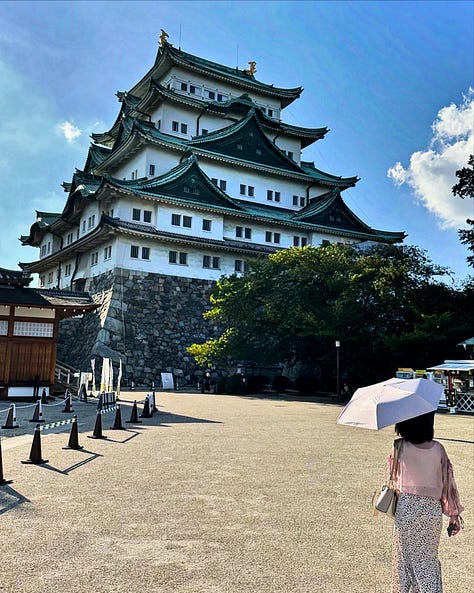
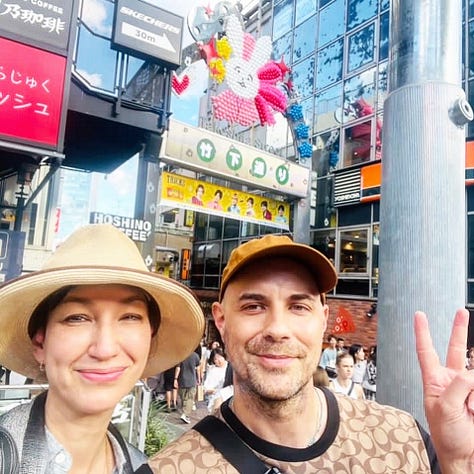
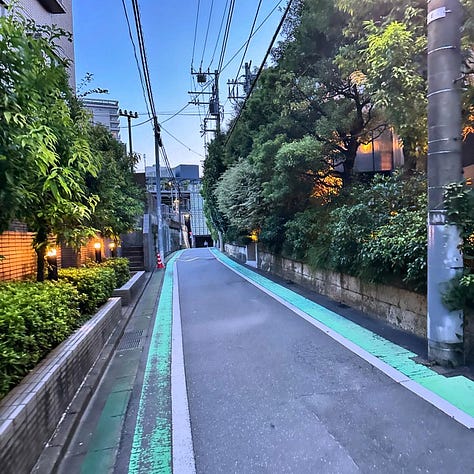

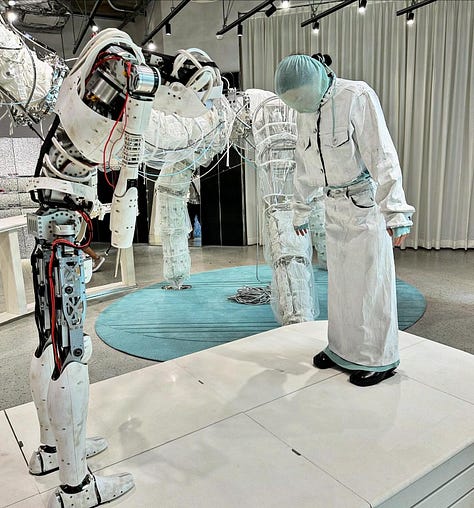
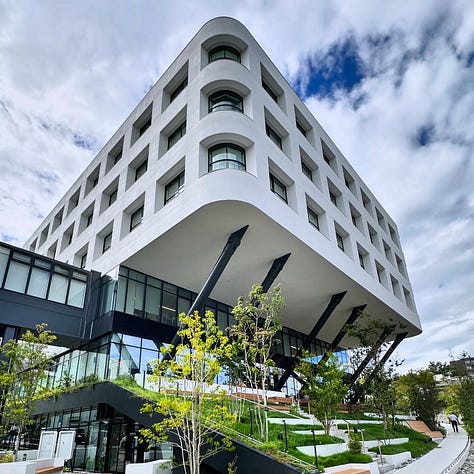


Japanese toilets are inventions of pure comfort, genius, & wonder. The toilet seats are warm. In fancier hotels, the toilet opens up the instant you get close so you don’t have to touch the lid. And you can press a button to give yourself a bidet rinse or a butt rinse, all with warm water and varying levels of pressure and water placement. In public restrooms, there’s even a button that makes noise so other people don’t hear you pooping. Out of curiosity, I pressed one when I using the bathroom at the Takashimaya department store and suddenly the sound of a powerful waterfall filled the bathroom. I felt embarrassed, but at least I knew
Keep reading with a 7-day free trial
Subscribe to Mixtape by Jackson Bliss | ジャクソンのミクステープ to keep reading this post and get 7 days of free access to the full post archives.

